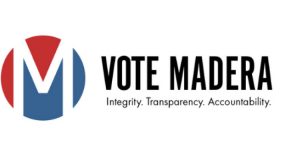From the website of Congressman Tom McClintock, 4th District of California
CALIFORNIA – The Rim Fire Emergency Salvage Act by Congressman McClintock was approved today by the House of Representatives as part of a larger bill, H.R. 2954 (The Public Access and Lands Improvement Act). Title IX of that bill compromises the Rim Fire Salvage Act.
The salvage language is the result of consultations with Democratic offices and with the U.S. Forest Service. The compromise language assures compliance with all environmental laws and maintains judicial review, while assuring that salvage can begin this spring.
“The region’s economy has been devastated by the fire and by increasingly stringent federal restrictions and land acquisitions that have ravaged the timber, livestock, mineral and tourist industries,” remarked Congressman McClintock upon passage of the legislation. “This measure means jobs for hundreds of lumberjacks, mill workers, truckers, and all those who support them. It means millions of dollars of economic activity and millions of dollars of federal revenues for reforestation. The focus is now on the Senate, which must join the House in enacting legislation that will protect the forest and the environment and help to prevent future cataclysmic fires.”
After passage of the measure by the House, Congressman McClintock sent the following letter to Senators Feinstein and Boxer urging swift action on the measure in the Senate:
Dear Senator Feinstein and Senator Boxer:
Today the House passed HR 2954, the Public Access and Lands Improvement Act. Title IX of that bill comprises the Rim Fire Emergency Salvage Act.
This language is the result of consultations with the U.S. Forest Service and several Democratic congressional offices:
· It authorizes the USFS to select acreage for salvage where there is no wilderness designation, ESA, historic or other legal restrictions.
· It authorizes the USFS to implement the draft EIS that is expected to be completed by April and deems the draft as compliant with all applicable environmental reviews. This will allow salvage to begin under their direction in April.
· It authorizes the USFS to modify the draft EIS in response to public comment and allows for judicial review of the final EIS based on ecological impacts – but it bars litigation based on process and it bars temporary restraining orders. This will allow timely salvage of a portion of the public lands destroyed by the fire while the final EIS is prepared and while any judicial review proceeds.
· Finally, it approves of the USFS using the millions of dollars raised by the salvage for forest restoration in the devastated Sierra.
This compromise language assures compliance with all environmental laws and maintains judicial review, while assuring that salvage can begin this spring.
Time is of the essence. Within a year, the timber loses much of its salvage value and within two years it becomes worthless. The USFS has exhausted all administrative options to accelerate the salvage timeline. Under current law, the earliest the agency can complete the environmental review process is August and any plan will then be subject to indefinite delay as litigation begins.
This region’s economy has been devastated by the fire and by increasingly stringent federal restrictions and land acquisitions that have ravaged the timber, livestock, mineral and tourist industries. This measure means jobs for hundreds of lumberjacks, mill workers, truckers, and all those who support them. It means millions of dollars of economic activity and millions of dollars of federal revenues for reforestation.
I urge you to act quickly either to approve this measure or send the House legislation that is acceptable to the Senate. I hope you will agree that there is plenty of room for compromise, but there is no excuse for inaction.
Sincerely,
Tom McClintock
The bill passed by a vote of 220 to 194 and now moves on to the Senate.




Time is of the essence. Delays equate to deterioration and lower quality of the wood products. That which in turn returns less money to the US Treasury. Which means less money to the counties of Stanislaus and others where timber is removed. Yes dollars come to our counties if we harvest timber and we can fix our roads and make improvements to our schools. So take some time and contact our two Senators who need to hear from Californians! Wise use of our natural resources is good. Obstruction by environmentalists is bad. Speak up. Give ’em a call write a letter…..